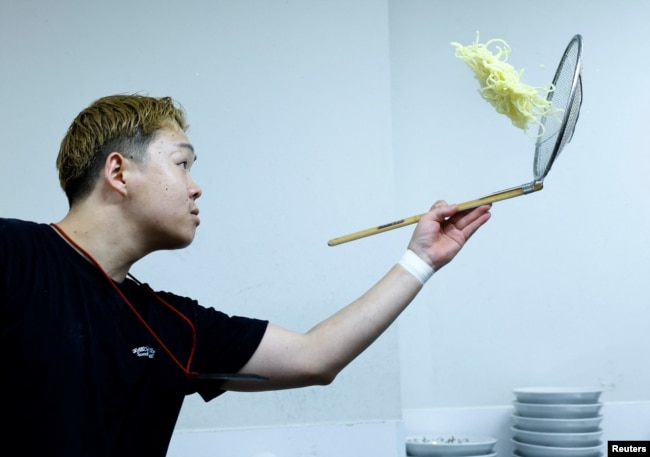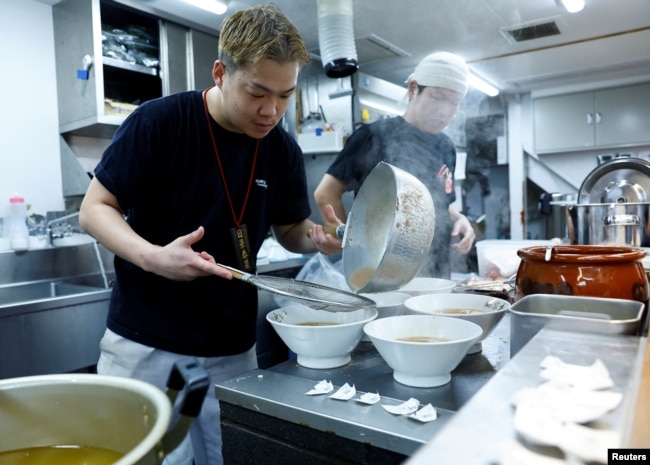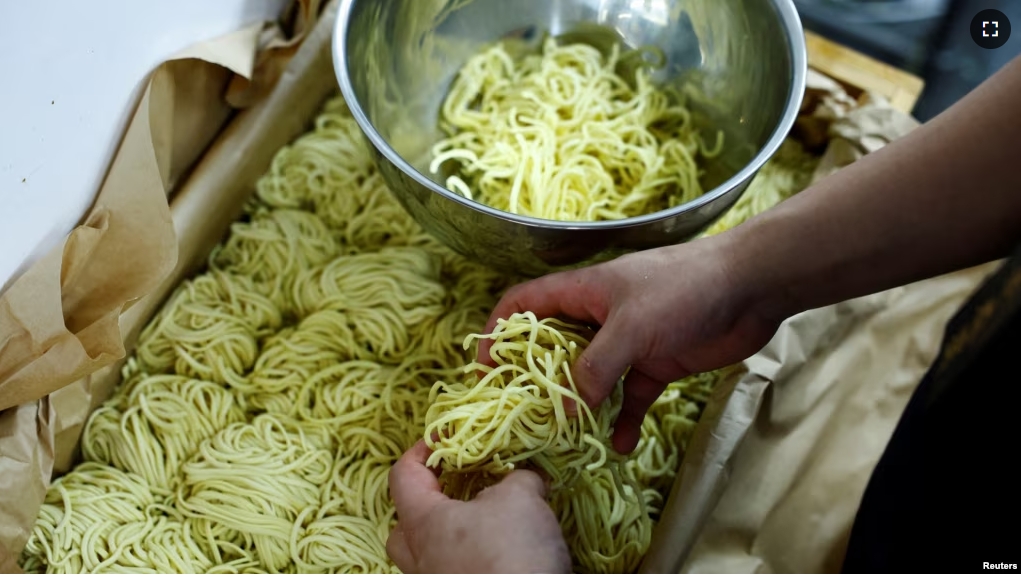Japanese ramen restaurants are famous for providing high-quality food at a reasonable price. But continuing inflation –particularly affecting food products and fuel – is making it difficult for ramen sellers to keep costs down.
One of those owners is 26-year-old Taisei Hikage. He opened a ramen restaurant in Tokyo about a year and a half ago. Hikage told Reuters he has already raised his food prices three times. The price for his top-selling “Special Ramen” is up 47 percent since he opened, now selling for $8.
But even after raising his prices, Hikage still struggles with rising costs. “Traditionally ramen shops were supposed to offer something cheap and tasty,” he said. “It’s no longer cheap food for the masses.”
The issues facing Japanese ramen restaurants are similar to inflation-linked problems experienced by businesses around the world.

In Japan, it became a big campaign issue in the country’s recent general election. Major political parties promised during the campaign to enact measures aimed at reducing rising business costs.
Hikage told Reuters that even though his prices have gone up sharply, his noodles are still in demand. Long lines form in front of his shop all day long.
Research by Japanese credit advisor Teikoku Databank shows that 49 Japanese ramen restaurant operators with large debts filed for bankruptcy in the first seven months of this year.
Rising import costs for businesses bringing goods into Japan have worsened the problem. In addition, the country’s currency hit a 34-year low against the dollar this year and has struggled to rise again.

Experts told Reuters the issues facing Japan’s ramen restaurants are part of wider economic difficulties in the country. Nationwide bankruptcies in one six-month period this year rose 18.6 percent over the same period last year to 4,990 cases, Teikoku Databank said. A record number of those were caused by inflation.
Toshihiro Nagahama is the chief economist at the Dai-ichi Life Research Institute. He told Reuters, “Just like ramen shops, companies offering goods and services that are in demand are transferring costs to product prices and seeing their sales grow.” But he noted that many businesses struggling to pass on higher costs are not making it.
For now, restaurant owner Hikage said he plans to keep centering on serving quality, tasty food and hopes the election result will lead to some business improvements.
I’m Bryan Lynn.
Reuters reported this story. Bryan Lynn adapted the report for VOA Learning English.
____________________________________________
Words in This Story
cheap – adj. costing less than usual
transfer – v. to move something from one place to another
